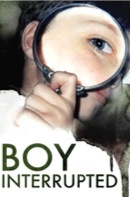Did I know, intuitively, that a year would be long enough? Did I hope for some kind of transformation; did I hope that in a year the desert would bloom again?
It's been a good place for me, this blog. Sometimes it's seemed like one long wail ~ against the loss of my beautiful child, against the disappearance of God, against the end of life as I knew it. Sometimes it's been a place in which to digest the trauma of suicide; to come to terms with one of, ironically, life's heaviest and loneliest experiences. Sometimes it's been a place of profoundly moving friendship, as other mothers have generously shared their own sorrows.
But I think it's run its course. I am, surprisingly to me, in a new place, something that's happened in just the last few days. In some ways a harder place ~ I think that I have found my way through an exterior shell of anger and pain and I am going to be left with a deep and pervasive sense of loss. There is not going to be anything to protect me from the reality that my beloved son is truly gone.
A couple of weeks ago I heard a talk by a 60-year-old man, and he mentioned having called his mother over the week-end. Such a casual remark is like a sharp stab into a tender spot for me; when I am 91, there will not be a 60-year-old Josh to give me a call. (Dear God, if I live to be 91, I will have spent 35 years without him, which is ten more than the short 25 we had. I am not hoping for 91.) Those are the moments, and they occur multiple times every day, with which I am going to have to contend without the protective veneer of the past fifteen-plus months.
But God is present to me again, in a way God has not been, and the air has cleared enough for me to recognize that the face of God has been present to me, albeit unrecognized by my grief-stricken heart, in the gifts of my family, of countless friends ~ some of whom I have known for years irl and some for only weeks online, and many in between ~ and most especially through the remarkable men who have persisted as my spiritual directors in incredibly patient and nonintrusive constancy.
I found the following a couple of days ago and posted it on my Advent blog, but I think it serves as a good ending to this one. Of course, total silence is beyond me, and I hope you'll still visit Search the Sea, where the journey will continue, sometimes no doubt loudly, but I think usually quite differently. This blog will stay up for awhile, at least until I decide what I want to do about it.
**********
The 14th century Dominican mystic, John Tauler, explains the gift of Zechariah's silence like this: “God cannot leave things empty; that would be to contradict his own nature and justice. Therefore, you must be silent. Then the Word of this birth can be spoken in you and you will be able to hear him. But be certain of this: if you try to speak then He must be silent. There is no better way of serving the Word than in being silent and listening. So if you come out of yourself completely, God will wholly enter in; to the degree you come out, to that degree will he enter, neither more nor less.”
 PROSPECTOR THEATRE, PARK CITY
PROSPECTOR THEATRE, PARK CITY




